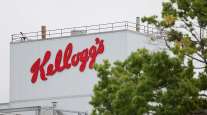UPS Earnings Exceed $1 Billion In 2nd Quarter
This story appears in the Aug. 1 print edition of Transport Topics.
UPS Inc., the largest corporation in North American freight transportation, earned more than $1 billion in net income during the second quarter for the second time since 2007, in spite of the precarious economy.
The Atlanta-based company’s top two officers said in a July 26 earnings call that they were pleased with the results of earning $1.06 billion, or $1.07 a share, on quarterly revenue of $13.19 billion. However, they also said they were concerned about the near future and how it will play out.
“It was not without some difficulty, given the uneven nature of the global economy,” said Chairman and CEO Scott Davis.
“While fuel prices have come down some, and Japan appears to be recovering, high unemployment and weak consumer confidence continue. The end of the second round of quantitative easing [by the Federal Reserve] and the government debt issues only add to the uncertainty,” Davis said.
In the second quarter of 2010, UPS earned $845 million, or 84 cents a share, on revenue of $12.2 billion.
Operating income and revenue increased, year-over-year, at two of the company’s three main sectors — domestic packages and supply chain/freight, which includes less-than-truckload carrier UPS Freight.
International parcels generated more revenue but posted a smaller profit because of foreign exchange and hedging issues.
UPS also earned $1 billion in the fourth quarter of 2010, which includes the seasonal shipping peak. The last time UPS earned more than $1 billion in the second quarter was 2007.
Chief Financial Officer Kurt Kuehn said business is not sticking to traditional rhythms.
“The shape of the next two quarters may not reflect typical seasonality. Given the softness in the U.S. economy, we expect third-quarter volume growth to be slow and operating margins to be similar to last year. In the fourth quarter, we expect year-over-year operating margin expansion,” Kuehn said.
“Economic conditions have slowed since we last provided guidance. A good example, U.S. GDP growth expectation for 2011 was at 3.1%. It was revised downward to 2.9% and now sits at 2.5%. These trends may reverse, as some are projecting, or they may continue. Clearly, economic conditions in the second half will impact where we fall within our range. That being said, our guidance . . . remains unchanged” at $4.15 to $4.40 a share for this year, Kuehn said.
Commenting on the LTL sector, Kuehn said that “UPS Freight’s jump in revenue was driven by strong LTL tonnage and shipment growth. Revenue per hundredweight was up 11%, driven by both higher fuel surcharges and increased base pricing.
“Our strategy of focusing on the middle market, leveraging the small package sales force, and driving operational efficiencies are paying off and continue to move us in the right direction,” Kuehn said.
In the company’s ground-based parcel work, revenue grew by 5.9% to $5.41 billion from $5.11 billion in last year’s second quarter. Volume grew by just 0.1% to 10.6 million packages a day from 10.59 million a year ago.
Next-day air volume for do-mestic parcels declined by less than 1%, and deferred air grew by nearly 1%.
Davis said he would like to see Congress and the administration enact trade agreements that have been negotiated with Colombia, Panama and South Korea. He also commented on budget issues.
“If Congress and the president resolve this debt ceiling issue satisfactorily in the next week, the mood of the country could change pretty quickly, and we could see demand picking up. Europe has made some progress in their sovereign debt issues. So the mood could change pretty quickly if we resolve some of these issues in front of us. So I wouldn’t say we’re pessimistic about the future. We’re just a lot more uncertain about how much the economy will grow,” Davis said.
Kuehn said the company has done well in its ability to generate cash.
UPS’s holding of cash and marketable securities increased to $5.64 billion on June 30 from $4.08 billion at the end of 2010. Shareholders’ equity, or corporate net worth, increased to $8.33 billion from $8.05 billion.
Stock analyst Peter Nesvold told clients of Jefferies & Co. on July 26 that UPS — and its main competitor, FedEx Corp. — both can do well, even if business volume does not boom.
“That yields continue to upside expectations despite a mixed macroeconomic backdrop is consistent with FedEx’s recent quarter,” Nesvold said.
Looking at UPS’s domestic parcel division, which made more money despite flat volume, Nesvold said the result “reinforces the thesis that UPS is a pricing story, not a volume story.”




